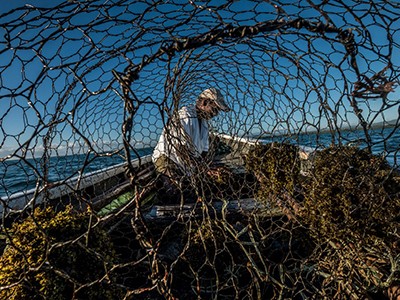The sea bed holds vast reserves of cobalt, nickel and other minerals, yet no international rules govern how such extraction might proceed or how its impacts should be contained. The International Seabed Authority (ISA) is mandated to set those rules, but in its July session, it failed to agree on a mining code. Meanwhile, 30 contracts for resource exploration remain in force and are edging closer to industrial extraction. This contradiction is not accidental. It stems from how the authority works — licensing first, restraining later. Transparency and independent review are needed to restore the balance.
Guess how much of the ocean floor humans have explored
Decision-making is concentrated in the ISA Council, which is responsible for rule-making, licensing and oversight. In other multilateral policy settings, guardianship and licensing are separated and public reporting is mandatory. The council deliberates mainly in closed sessions. Scientists and civil-society representatives can attend as observers, but rule 75 restricts them to a seat without a vote — they are present in the room, yet absent from the decision-making.
Three structural gaps currently erode the ISA’s credibility as a body to govern the sea bed on behalf of all humankind. A representation gap: decisions are dominated by states with mining interests, whereas nations without mining capacity — and independent scientists and civil-society groups — remain marginal. A mandate gap: safeguards are applied mainly as formalities, with weak links to science. And a legitimacy gap: baseline data produced largely by contractors are subject to little independent review or oversight — unlike in other governance regimes such as regional fisheries bodies or the International Whaling Commission.
These gaps date back to the 1990s, when the ISA’s architecture was designed — before deep-sea ecosystems were understood, before biodiversity was recognized as a pillar of sustainable development and before transparency became a norm in multilateral negotiations. The ISA was established in 1994 under the United Nations Convention on the Law of the Sea (UNCLOS) with a dual mandate: to safeguard the sea bed as humanity’s common heritage and to regulate its exploitation for the benefit of all. Three decades on, that balance has tilted towards exploitation, with the authority pressed to consider mining applications before binding rules or environmental standards exist.

Five priorities for a sustainable ocean economy
In July 2021, the state of Nauru triggered a clause in UNCLOS obliging the ISA to finalize a mining code within two years. When no code was adopted by July 2023, this period’s expiry entitled states to submit applications in the rules’ absence. Although negotiations and drafting of the code have advanced since, progress on environmental baselines and benefit-sharing mechanisms has stalled. In practice, the precautionary principle has been applied unevenly across ISA sessions, reflecting divergent legal interpretations, standards of evidence and political alignments.
Norway’s January 2024 vote to allow exploratory sea-bed mining has heightened environmental concerns. Moreover, independent research usually arrives too late to shape outcomes, whereas data generated by contractors dominate the evidence base and raise doubts about independence. Proposals to embed independent review in ISA procedures have repeatedly stalled, leaving trust in the authority’s decisions fragile.
Three gates would give the ISA enforceable checkpoints before any mining licence is granted. These focus squarely on institutional reform, not on individuals or countries, and would help the ISA to fulfil its mandate.

